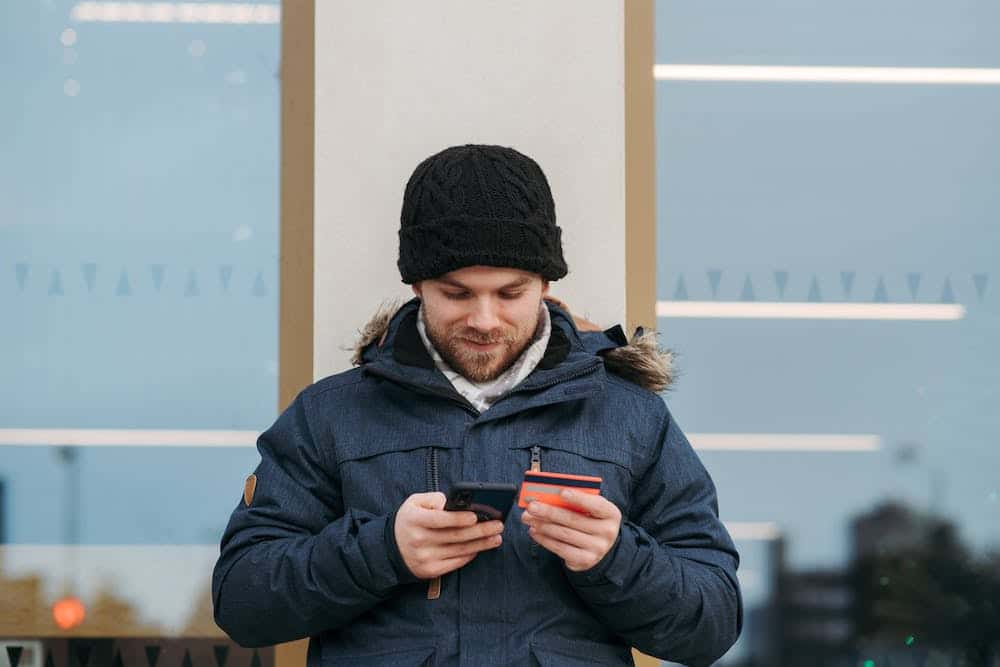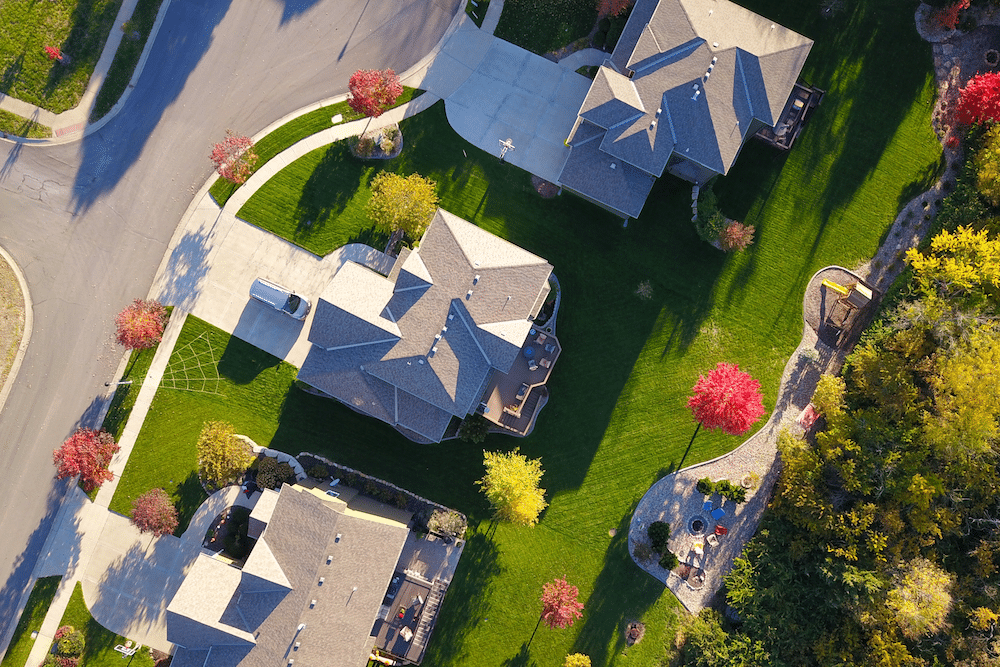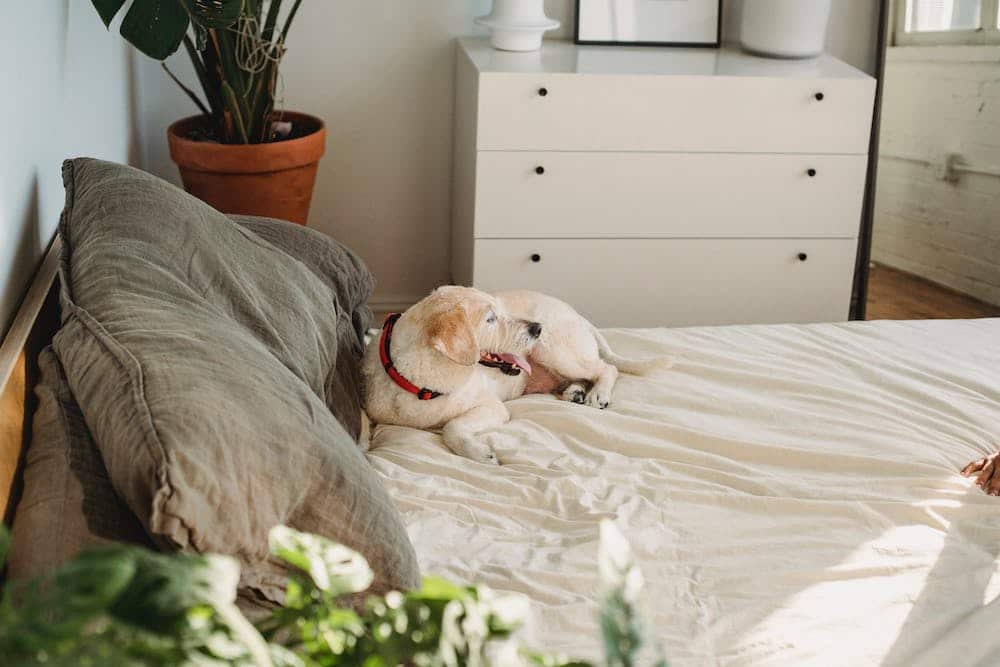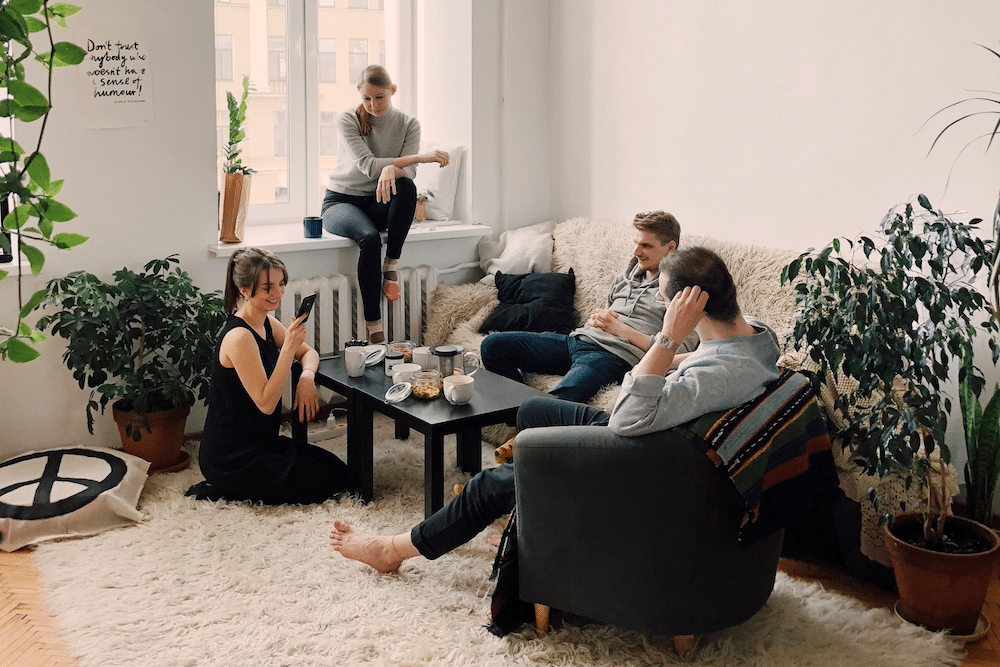As a vacation rental host, you face many challenges when it comes to ensuring the safety and smooth running of your rental, including guests checking out late, items going missing, or property damage.
However, one of the most common challenges is guests bringing extra visitors without prior approval, exceeding your Airbnb guest policy and potentially leading to a breach of house rules, increased wear and tear, and security concerns.
Whether guests want to organize an unauthorized party or simply avoid paying for an extra person, we’ll explore effective measures to prevent Airbnb guests from bringing extra visitors and provide insights on how to handle such situations if they arise during a guest’s stay.
Don’t see the form to download our House Rules Template? Click here.
Why should you enforce a strict Airbnb guest policy?
Why set a cap on the number of guests? Well, there are plenty of good reasons! Maybe your place is just meant for a certain crowd size, or you don’t want to ruffle feathers with the neighbors over noise, or you just simply don’t want to deal with extra bills and cleaning.

On the other hand, some states legally require you to register every guest staying at your vacation rental. And hey, did you know Airbnb cracked down on parties in 2022? Enforcing your Airbnb guest limit isn’t just good for your sanity; it shields you as a host and covers you when your guests decide to cause trouble.
How strict are Airbnb guest limits?
As a general guideline, Airbnb allows hosts to set the maximum number of guests permitted. Property managers can specify this limit in their property’s listing details, and guests are expected to adhere to these guidelines.
If guests attempt to book for a number exceeding the host’s specified limit, they may need to seek approval from the host or find alternative accommodations.
How to avoid exceeding your Airbnb maximum guests
While Airbnb is an excellent platform to showcase your vacation rental, there may be instances where you need to control and limit the number of guests to ensure a positive guest experience and protect your rental. Let’s look at some of the most effective measures you can take.

1. Include the policy in your house rules
The foundation for preventing unauthorized guests starts with setting clear and comprehensive house rules. Clearly outline the maximum occupancy allowed, including both overnight and daytime guests, in your listing description and house rules section.
Get your guests to sign off on them to confirm they’ve read them and are aware of any consequences or penalties should they be broken. Also, reemphasize that parties are strictly forbidden.
Your rules can be displayed on your Airbnb listing, your direct booking website, and on any other OTAs (online travel agencies, such as Vrbo and Booking.com) that you’re listed on.
Download our vacation house rules rental template, which you will be able to personalize and edit in line with the needs of your rental business. In the free template, you’ll find a suggested section on additional guests.
2. Maintain effective communication
Establishing open communication with your guests is crucial. Send a welcoming message upon booking confirmation, reiterating the maximum occupancy and any specific rules regarding guests. You should also encourage guests to reach out if they have any questions or need clarification on house rules, as this not only fosters a positive relationship but also subtly reminds guests of the importance of adhering to house rules.
Proactive communication throughout the stay can set expectations and deter guests from even attempting to bring extra visitors, and, if there are any concerns or reports of unauthorized visitors, addressing them promptly can prevent further issues.

3. Include all the names of guests in the vacation rental agreement
Getting into a vacation rental agreement is a smart move to make sure everyone’s on the same page and avoid any drama down the road. Both you and your guests need to sign on the dotted line, and these agreements can vary depending on the host or business. They normally cover the maximum occupancy, check-in/check-out terms, minimum stay requirements, house rules, rental rates, additional fee information, etc.
Once your guests have arrived, ask them to write down all the names of the occupants in the rental agreement. This way, you’ll know exactly who is staying, and the guests won’t be able to justify bringing unauthorized visitors.
Lodgify’s vacation rental agreement template covers the most important aspects to have in an agreement, including maximum occupancy limitations. Download it here in PDF for free.
4. Charge a deposit
If you’re using API-connected software like Lodgify to handle your listings, you can add a security deposit using Airbnb’s offline fees feature. The deposit gets clearly communicated to your guests throughout the booking process, and it’s your safety net if someone decides to break your house rules. This will likely deter guests from bringing additional visitors, knowing they will be charged for it.

5. Airbnb guest screening
In your guest communications, ask them friendly questions about their upcoming trip, so you can get a better idea of who and what to expect. Problem guests don’t normally like too many questions.
You can also leverage guest verification tools to ensure transparency and accountability. Encourage guests to provide accurate information about the number of individuals in their party during the booking process, as this will put them off from breaking your house rules, knowing that you have their information, including identity documents and contact details.
Furthermore, Airbnb’s review system allows hosts to share their experiences, providing future hosts with valuable insights about guests’ adherence to house rules. Have a look to see if your guest has any previous incidents of bringing extra visitors.
6. Install surveillance cameras
Installing a camera surveillance system outside of the property will allow you to feel more in control, knowing you have eyes on the property the whole time. It’s an effective measure, as you can see who enters and leaves the property. Consider placing the camera towards the entrance of the property or facing the driveway.
Another practical tool is a smart doorbell. This cool invention is a doorbell with a camera installed on your front door that automatically notifies your smartphone and then connects you live to the camera. No matter where you are, you’ll be able to see who is at your front door, and you can even speak to them if you wish.

It’s important that you disclose that you have a security camera or smart doorbell in your listing, house rules, and guest communications. Knowing they can be watched when entering and leaving the rental. And, if they bring additional people, you have evidence to charge them extra, keep their deposit, or report them to Airbnb.
7. Smart technology solutions
Thinking about getting some smart home tech for your vacation rental? It’s not just about the cool factor – it can seriously amp up your security game. Imagine having smart locks that give each guest their own special code. You can keep tabs on who’s coming and going, and some systems even let you set time-limited access codes. That means no more worries about guests passing around codes to folks who shouldn’t be there. Smart, right?
8. Add an Airbnb extra guest fee
Want to make sure your Airbnb stays drama-free with the right number of guests? Just add on an extra Airbnb guest fee! The thought of having to pay more for extra guests may put off anyone thinking of risking it, and if they do, at least you can be adequately covered by an extra guest fee. So, if your standard occupancy is four, start charging for the 5th and 6th guests.
You can check out how to add this extra guest fee on Airbnb here, but remember—it’s only for future bookings. Once your guests have rolled in and checked out, you won’t be able to add any extra fees that weren’t originally agreed upon, even if they exceed your Airbnb guest limit.

9. Adjust minimum stay requirements
Airbnb allows hosts to set minimum stay requirements for their listings. So, by strategically adjusting the number of nights, you can influence the type of guests attracted to your property. Setting a minimum stay of two nights or more can help keep the loud party crowd away and draw in folks looking for a chill, longer getaway.
10. Utilize dynamic pricing strategies
Implementing dynamic pricing can be a powerful tool in controlling demand for your property. You can tweak prices depending on factors like busy seasons, local happenings, or those last-minute decisions people make. This way, you can kind of pick and choose the kind of guests you want. Crank up the prices when it’s super busy, and you might steer clear of rowdy party crews. Drop them a bit during slower times, and you could pull in guests looking for a more extended, relaxing stay.
11. Use Instant Book with caution
Instant Book can be handy for letting guests lock in a reservation without waiting for your thumbs up, but it might not be everyone’s cup of tea. Think about turning off Instant Book and going old school with manual approval. This way, you get to take a peek at potential guests and make sure they’re right for your property.
Onsite at your Airbnb: Too many guests
Even if you’ve implemented all of the above measures, there is still a chance that some guests may bring extra guests. Sometimes groups may be dishonest or think they can get away with bringing their friends to the rental without paying extra; however, it’s important to stay calm and collected as some guests may unintentionally overlook house rules.
In either case, here’s how you can deal with too many guests on-site:
1. Communication is key
Firstly, engage in open communication with the guest and try to find a peaceful resolution. If your guest asks if they can bring more friends along, then shoot them a quick update on the Airbnb extra guest fee if your property can handle a few more.
But if you can’t accommodate any more, then let them know before kindly asking them to cancel the reservation. They’ll then get the refund as per your cancellation policy.

2. Review house rules with the guests
Remind the guests of the house rules they agreed to during the booking process. You can do this politely, emphasizing the importance of adherence for the safety and security of everyone involved.
3. Ask your neighbors to keep an eye out
Another way to keep an eye on your visitors without being too intrusive is by asking your neighbors to be on guard.
If your neighbors spot any unauthorized visitors or notice a large group entering the rental, get them to give you a call. From there, you can take the necessary steps by either calling your guests or reporting them to Airbnb.
If you manage the property long-distance, having a friendly relationship with your neighbors is always handy. Similarly, you can ask your property manager to keep an eye out too.

4. Report to Airbnb: More guests than booked
If your guests break the rules, and there appears to be no amicable solution, then give Airbnb the full lowdown. Grab all the proof you can – screenshots from your security camera or smart doorbell, messages with your guests, and maybe even a statement from your neighbor. Shoot it all over to Airbnb.
They’ll kick off a case and do what needs doing, like slapping your guests with extra charges. And hey, if those guests start trashing your place in a review, remember that Airbnb has a policy that removes any unfair reviews that guests write out of anger and retaliation.
5. Technological solutions to monitor occupancy
Why not get your hands on occupancy sensors that can tell you when a space is being used? Whether it’s the living room, bedroom, or even the broom closet (hey, you never know), these sensors keep you in the loop.
For example, our integration partners, Minut, have developed a feature called Crowd detect, which hosts can use to keep tabs on how many people are hanging out in their rental. It’s like your property’s own personal security guard, giving hosts a heads-up if things are getting a bit too crowded.
So, what happens if you bring more guests to an Airbnb? With Crowd detect, you can track the number of mobile devices in your place, and it’ll shoot you a quick alert if things start to look like a party is in full swing and the guest list is growing longer than expected.
What if my rental is not listed on Airbnb?
If you’re not listing on Airbnb and have your own vacation rental website, you can still implement the house rules and a security deposit. You can also still keep an eye on your guests during their stay with the camera surveillance, smart doorbell, and through your neighbors or property manager.
What if my guests bring pets?
The same concept applies if guests bring pets without having asked for your prior permission. If your vacation rental is pet-friendly and you allow pets, you can charge your guests a pet fee. Most guests would expect to pay this, but some may want to avoid the costs and sneak their furry friends in.
State this clearly across all your listing sites and documentation. If you do not allow pets altogether, make it clear: along with having additional guests, they cannot bring their pets.

Key takeaways
Preventing Airbnb guests from bringing extra visitors requires a combination of proactive measures, effective communication, and the right technology. By setting clear expectations, utilizing Airbnb’s tools, and addressing any issues promptly and professionally, hosts can create a secure and enjoyable environment for both themselves and their guests.
Remember, a well-managed property leads to positive reviews, increased bookings, and a reputation for being a responsible and trustworthy host.
Disclaimer: Lodgify is an Airbnb Preferred Software Partner. This post, including any claims or statements within, is solely from Lodgify and is not endorsed by, directly affiliated with, authorized, or sponsored by Airbnb in any way.
Why not use our Airbnb Income Calculator to see if you’re maximizing your revenue potential on Airbnb?
Don’t see the form for the Airbnb Income Calculator? Click here.


